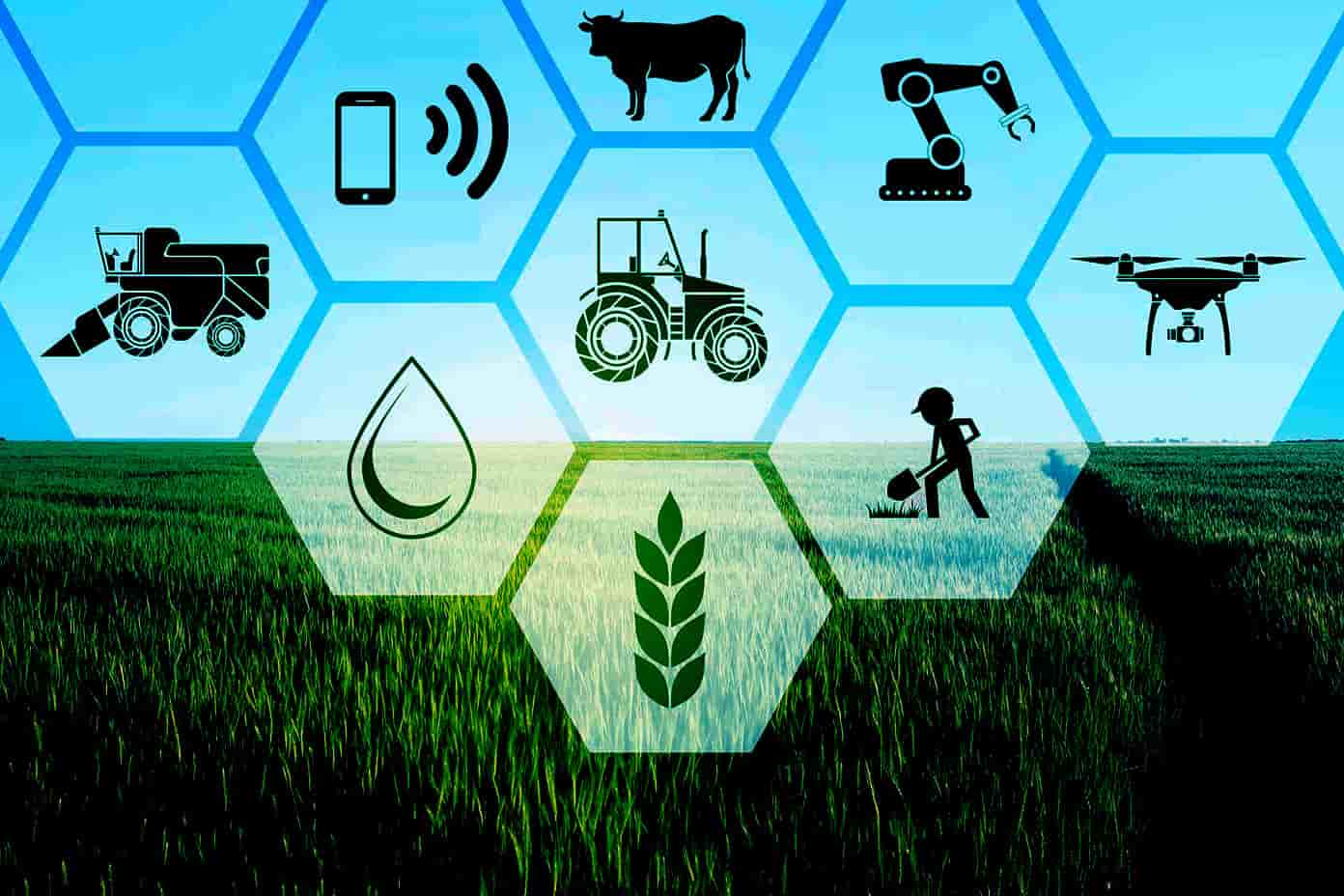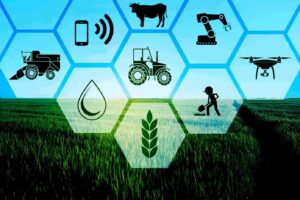The agricultural industry is undergoing a significant transformation, driven by the adoption of emerging technologies and the concept of digital transformation. The integration of Internet of Things (IoT), Artificial Intelligence (AI), and blockchain is revolutionizing farming practices and revolutionizing supply chain management in the agro commodities sector. This article examines the role of these technologies in reshaping agriculture and explores their potential benefits and challenges.
- Internet of Things (IoT) in Agriculture: IoT enables the connection of devices, sensors, and machinery to gather real-time data from farms. Soil moisture sensors, weather stations, crop monitoring systems, and livestock trackers provide valuable insights into crop health, irrigation needs, weather patterns, and animal behavior. Farmers can make data-driven decisions, optimize resource usage, and enhance productivity through precise and timely interventions.
- Artificial Intelligence (AI) in Agriculture: AI-powered systems analyze vast amounts of data collected through IoT devices, satellite imagery, and historical records. Machine learning algorithms can detect patterns, identify diseases, predict crop yields, and provide personalized recommendations. AI helps farmers optimize planting schedules, manage pests and diseases, and optimize crop varieties for specific soil and climate conditions. It enhances decision-making capabilities and improves overall farm management.
- Blockchain in Supply Chain Management: Blockchain technology provides transparency, traceability, and trust in supply chain management. It enables secure and immutable recording of transactions, product information, and certifications. In the agro commodities sector, blockchain can track the entire journey of products, from farm to consumer, ensuring authenticity, quality, and compliance. It enhances food safety, reduces fraud, and builds consumer trust.
- Benefits of Digital Transformation in Agriculture:
- Increased Productivity: Digital technologies enable precision agriculture, optimizing resource usage and increasing yields.
- Enhanced Sustainability: Smart farming practices reduce water usage, minimize chemical inputs, and promote sustainable land management.
- Improved Decision Making: Real-time data and AI-driven insights help farmers make informed decisions for better farm management.
- Supply Chain Efficiency: Blockchain ensures transparency, traceability, and streamlined processes, reducing waste and enhancing trust.
- Market Access and Consumer Demand: Digital transformation opens new avenues for direct sales, personalized marketing, and meeting consumer demands for transparency and sustainability.
- Challenges and Considerations:
- Access and Affordability: Widespread adoption of digital technologies may face challenges in terms of cost, connectivity, and infrastructure in rural areas.
- Data Privacy and Security: Collecting and managing large amounts of sensitive farm data requires robust security measures and adherence to privacy regulations.
- Farmer Adoption and Education: Farmers need training and support to understand and embrace digital technologies, overcoming barriers to adoption.
Digital transformation in agriculture holds immense potential to address challenges in food production, resource management, and supply chain efficiency. By leveraging IoT, AI, and blockchain, farmers can optimize their operations, reduce environmental impact, and meet the demands of a rapidly changing market. Collaboration among stakeholders, investment in digital infrastructure, and continuous research and development are crucial for unlocking the full benefits of digital transformation in the agro commodities sector.




